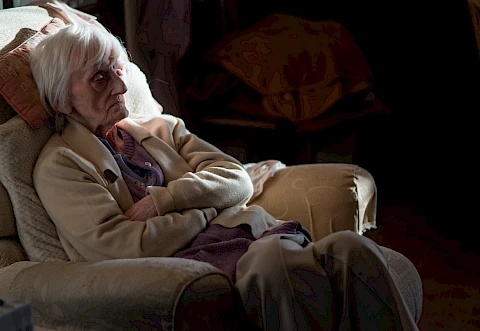
Chronic illness is a common challenge among seniors, impacting both physical well-being and emotional health. While the physical symptoms of chronic illness are often addressed, the emotional and mental toll can be easily overlooked. It's time to explore how chronic illness can lead to ongoing emotional stress among seniors and ways caregivers can manage these challenges.
1. Isolation and Loneliness
Chronic illness can lead to social withdrawal, leaving seniors feeling isolated and lonely. Seniors may experience decreased social interactions, reluctance to go out, and less frequent communication with friends and family. Caregivers can help by encouraging participation in social activities, facilitating virtual connections through video calls, organizing visits from family and friends, and considering community programs and senior groups.
2. Anxiety and Fear
Anxiety due to health uncertainties is common among seniors with chronic illnesses. Symptoms to watch for include restlessness, excessive worry about health outcomes, and trouble sleeping. Caregivers can provide reassurance and emotional support, create a stable daily routine to offer predictability, encourage relaxation techniques like deep breathing, and offer professional counseling if needed.
3. Depression
Chronic illness can significantly impact a senior's mood and overall outlook on life. Indicators of depression include persistent sadness, loss of interest in activities they once enjoyed, and changes in appetite and sleep patterns. Supportive actions include seeking professional help from a therapist or counselor, encouraging physical activity and hobbies, maintaining regular social interactions, and considering medication under a doctor's supervision.
4. Frustration and Anger
Dealing with chronic illness can lead to feelings of helplessness and anger. Behavioral signs include irritability, outbursts or short temper, and expressing frustration over limitations. Caregivers should practice patience and understanding, offer a listening ear without judging, encourage them to express feelings healthily, and use calming techniques such as deep breathing exercises.
5. Guilt and Burden
Seniors often feel like a burden on their families and caregivers. Signs to notice include expressions of guilt or worry about being a burden and reluctance to ask for help or accept assistance. To alleviate these feelings, maintain open communication about their concerns, reassure them of their value and importance, highlight the positive impact they have on family life, and share caregiving tasks among family members to distribute responsibility.
6. Loss of Identity and Purpose
Chronic illness can affect a senior's sense of self and purpose. Signs of identity loss include withdrawal from hobbies and interests and lack of motivation to engage in daily activities. Caregivers can intervene by encouraging them to discover new hobbies and interests, fostering a sense of purpose by involving them in simple, meaningful tasks, and helping them set attainable goals and celebrate achievements.
7. Financial Stress
Medical expenses can create financial strain, adding to emotional stress. Signs of financial stress include:
- Anxiety over paying bills
- Reluctance to spend money on necessary items
- Frequent discussions about financial concerns
Support options include exploring financial aid and resources available for seniors, assisting in budgeting and managing expenses, and considering consulting a financial advisor for long-term planning.
Senior Helpers Westchester Can Offer Professional Caregiving Services
Chronic illness brings more than just physical challenges. The emotional impacts, such as loneliness, anxiety, and depression, can significantly affect a senior's quality of life. Addressing emotional health is part of overall well-being. If you need support, contact Senior Helpers Westchester. We assist seniors in Mount Vernon, Yonkers, New Rochelle, and Westchester County. We're here to ensure your loved one's emotional and physical needs are met.